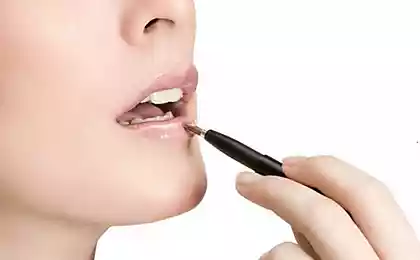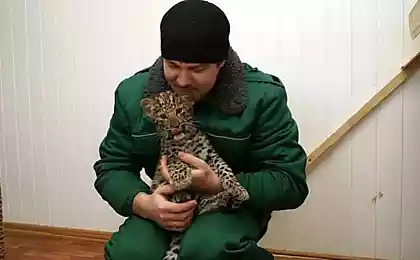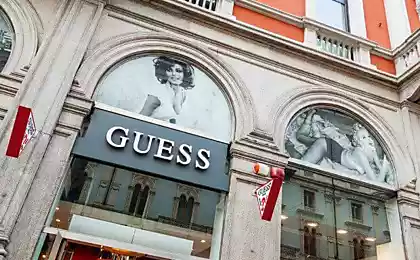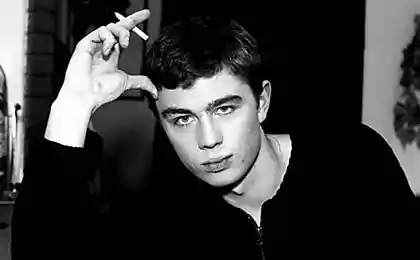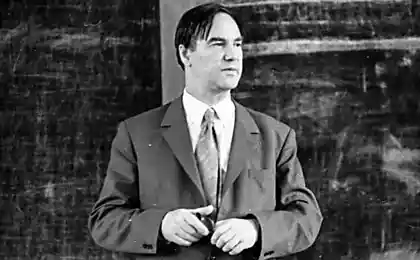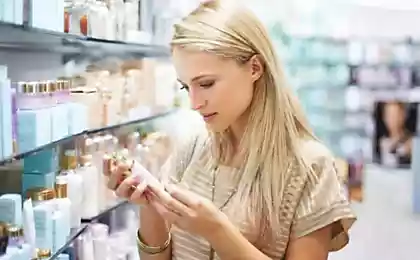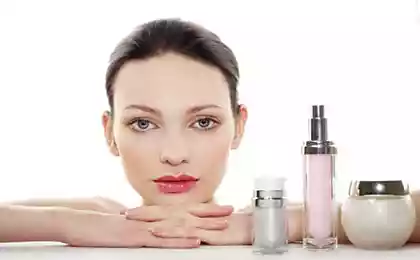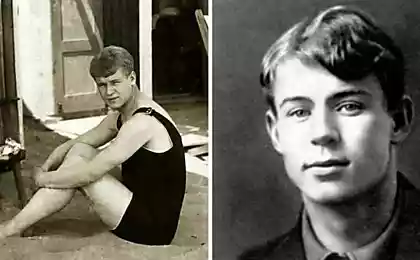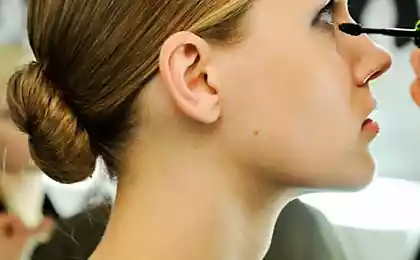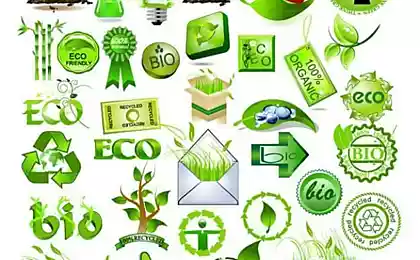326
Sergei Ostrikov: The trend towards naturalness in Russia has not yet begun.
Interview with Sergey Ostrikov, beauty blogger and creative director of the online store Pudra.ru Seryozha, tell us how your career path developed.
By higher education, I am a graphic designer, by postgraduate and PhD degree, an art critic in the field of technical aesthetics and design. It happened, and now I find it hard to believe how early I started working – by the time I was 25 I had 13 years of continuous experience in media, design studios and various projects. Started at the age of 12 as a layout designer in a regional teenage newspaper, at 19 he became a senior designer in the marketing and special projects department at the largest Russian magazine Cosmopolitan - it was there that I realized how attracted I was to the field of beauty. Of all the projects, I liked to make models for cosmetic brands – I could stay in the editorial office until the night and read beauty sections of magazines published by Independent Media (now Sanoma Independent Media). A few years ago, I started my beauty blog, where I talked about products and makeup with the degree of objectivity with which I could – with my artistic background and sense of color, most of all I liked to write about decorative cosmetics, later came a passion for care and perfume. Now I am 27, and for the past two years I have been working as the creative director of the online store Pudra.ru. How did you get the idea to start a beauty blog? You're a man, but you know a lot about women's cosmetics. How does your audience feel about this and why do you care?
The idea didn't come. The blog became a sublimation of all those inner impulses that have been my whole life. I trembled before the so-called “banks” from early childhood, when I was picking my sister and mother’s cosmetics (I hope they didn’t notice this). When I first started, my blog was very aggressively received by wild audiences of the time. From all sides it was heard: “Man beauty blogger – are you kidding?”, “Let the men take their hands off our cosmetics!”, “Where is this world going” and all this kind of stuff, only with harsher words and expressions. If it wasn’t for my true love and passion, I would have given up, but with the pressure of “well-wishers”, I became a strong and sought-after expert in several areas at once, as I managed to be on all fronts of the cosmetics business as a whole – from blogging to retail. Now I have a large number of followers on all social networks who listen to my opinion. I, in turn, try to reciprocate – study the interests of the audience, demand, expectations and other factors. What do you think about the trend of naturalness in the cosmetic field? Is it in the growth phase or is it already fading? In your opinion, does the aspect of natural compositions of the consumer care?
At the federal level, the trend has not yet begun. Natural cosmetics began to be popular, but so far only in a narrow audience, which closed all the basic needs of the pyramid Maslow. The prerequisites for this are primarily economic: outside Moscow, people frankly do not have money for “near-natural” products. While the capital’s journalists write “how difficult it is to live on 250 thousand rubles a month”, in the regions somehow people manage to live on 20,000 rubles. and in parallel, any serious loan to pay. A familiar marketer studied the regional market of nail polishes and found, for example, that nail polishes for 150 rubles. outside Moscow are already considered a premium segment, because girls often buy much cheaper coatings, although it was difficult for me personally to imagine that cheaper can even exist! Which natural brands do you work with? Do you think the marketing of natural cosmetics in Russia is effective? Who can you use as a role model?
In some periods of my five-year blogging experience, I managed to collaborate with Whamisa (excellent Korean cosmetics with EcoCert certificates), Organic Pharmacy, Weleda, Nourish, Soapmakers (I don’t know how it is now, but they used to have just amazing organic soap), Aveda, Era Minerals, Corine de Farme, Kibio (the brand has left Russia), Melvita, Organic Surge, Lemongrass House, Sheaterra Organics, Osmium For Men (aweaking men’s cosmetics from the UK), Novelcream, which is not immediately in the head of Santacre, and Santac. I can’t say that the marketing of any of these brands impressed me to the level of “wow!”, but I can definitely note the work with the bloggers of Lemongrass House. I would also like to commend Weleda for its excellent work with the press, despite the stinginess of the news.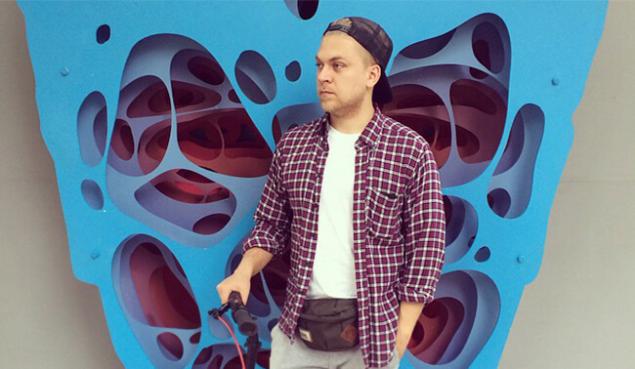
Tell us about the lifestyle of a beauty blogger. What is the job?
The answer to this question is almost impossible, since beauty bloggers who live in Russia only on the means of blogging can be counted on the fingers of one hand of a disabled person - and since the profession has not objectively developed, each individual unit will have its own way of life without a clear system. To consider just unemployed, for whom blogging is a hobby from boredom - I will not. I believe that commercially successful people should be analyzed. I still monetize my beauty expertise not through a blog, but on a full-time job in the cosmetic project Pudra.ru, so I will not give a description of the lifestyle of a beauty blogger. I can be responsible for the lifestyle of a creative director and part-time blogger, but this is a separate topic for discussion. Tell us a few examples of this experience in the early days of blogging.
Brands started contacting themselves six months after starting blogging. At the very beginning of its management, I paid great attention to high-quality photography of all products with a SLR camera and diligent painting of watches. Brands took notice very quickly at a time when most others were taking their pictures on a digital soapbox. And now, a few years later, if not traffic, the quality of the content attracts brands and helps the blogger quickly become popular. Previously, in addition to serious beauty materials, I liked to write humorous notes that became very viral - they were mentioned in blog rolls, discussed on forums and reposted. For example, the general classification of beauty bloggers.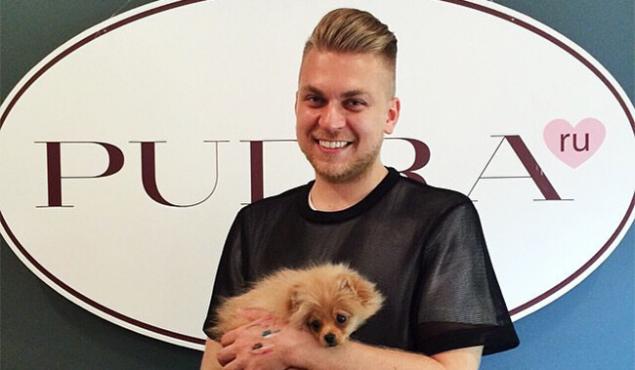
Will Pudra.ru increase the presence of natural brands? Why? Who will you give priority to?
I think that the potential for the development of this category on Pudra.ru is certainly there, but it is important to work together with brands to popularize them – on the Internet they buy exactly what has gained Internet fame. Magazines and other traditional media have little impact on online sales. It is very important to highlight stellar products and promote them even more. You should never try to promote the product on the Internet, to which initially weak interest for any reason. Do you think that natural brand promotion in Russia is more difficult or easier than usual? Who is the consumer of natural cosmetics today?
Undoubtedly more difficult – at least in view of the fact that the majority of natural brands in Russia is not large media and PR-budgets. For understanding, natural cosmetics are also often difficult - it may not have an enticing aroma (hello, a natural depilation product Arte Fiori!), have a strange texture (hello, the same remedy!) and still cost more than equally effective analogues that do not claim to be natural. It is also worth noting the complexity of progress in the narrowness of Central Asia - it is necessary to look for special approaches and places of deployment. Consumers of natural and organic cosmetics, as I said earlier, are people with satisfied basic needs. Relatively speaking, they do not eat frozen dumplings from the supermarket and do not cut their hair in the cheapest barbershop within walking distance from home. published
P.S. And remember, just changing our consumption – together we change the world!
Join us on Facebook, VKontakte, Odnoklassniki
Source: liveorganic.ru/rubrics/cosmetics/cosmetics-actual/trend-for-naturalness-hasn-t-started-yet
By higher education, I am a graphic designer, by postgraduate and PhD degree, an art critic in the field of technical aesthetics and design. It happened, and now I find it hard to believe how early I started working – by the time I was 25 I had 13 years of continuous experience in media, design studios and various projects. Started at the age of 12 as a layout designer in a regional teenage newspaper, at 19 he became a senior designer in the marketing and special projects department at the largest Russian magazine Cosmopolitan - it was there that I realized how attracted I was to the field of beauty. Of all the projects, I liked to make models for cosmetic brands – I could stay in the editorial office until the night and read beauty sections of magazines published by Independent Media (now Sanoma Independent Media). A few years ago, I started my beauty blog, where I talked about products and makeup with the degree of objectivity with which I could – with my artistic background and sense of color, most of all I liked to write about decorative cosmetics, later came a passion for care and perfume. Now I am 27, and for the past two years I have been working as the creative director of the online store Pudra.ru. How did you get the idea to start a beauty blog? You're a man, but you know a lot about women's cosmetics. How does your audience feel about this and why do you care?
The idea didn't come. The blog became a sublimation of all those inner impulses that have been my whole life. I trembled before the so-called “banks” from early childhood, when I was picking my sister and mother’s cosmetics (I hope they didn’t notice this). When I first started, my blog was very aggressively received by wild audiences of the time. From all sides it was heard: “Man beauty blogger – are you kidding?”, “Let the men take their hands off our cosmetics!”, “Where is this world going” and all this kind of stuff, only with harsher words and expressions. If it wasn’t for my true love and passion, I would have given up, but with the pressure of “well-wishers”, I became a strong and sought-after expert in several areas at once, as I managed to be on all fronts of the cosmetics business as a whole – from blogging to retail. Now I have a large number of followers on all social networks who listen to my opinion. I, in turn, try to reciprocate – study the interests of the audience, demand, expectations and other factors. What do you think about the trend of naturalness in the cosmetic field? Is it in the growth phase or is it already fading? In your opinion, does the aspect of natural compositions of the consumer care?
At the federal level, the trend has not yet begun. Natural cosmetics began to be popular, but so far only in a narrow audience, which closed all the basic needs of the pyramid Maslow. The prerequisites for this are primarily economic: outside Moscow, people frankly do not have money for “near-natural” products. While the capital’s journalists write “how difficult it is to live on 250 thousand rubles a month”, in the regions somehow people manage to live on 20,000 rubles. and in parallel, any serious loan to pay. A familiar marketer studied the regional market of nail polishes and found, for example, that nail polishes for 150 rubles. outside Moscow are already considered a premium segment, because girls often buy much cheaper coatings, although it was difficult for me personally to imagine that cheaper can even exist! Which natural brands do you work with? Do you think the marketing of natural cosmetics in Russia is effective? Who can you use as a role model?
In some periods of my five-year blogging experience, I managed to collaborate with Whamisa (excellent Korean cosmetics with EcoCert certificates), Organic Pharmacy, Weleda, Nourish, Soapmakers (I don’t know how it is now, but they used to have just amazing organic soap), Aveda, Era Minerals, Corine de Farme, Kibio (the brand has left Russia), Melvita, Organic Surge, Lemongrass House, Sheaterra Organics, Osmium For Men (aweaking men’s cosmetics from the UK), Novelcream, which is not immediately in the head of Santacre, and Santac. I can’t say that the marketing of any of these brands impressed me to the level of “wow!”, but I can definitely note the work with the bloggers of Lemongrass House. I would also like to commend Weleda for its excellent work with the press, despite the stinginess of the news.

Tell us about the lifestyle of a beauty blogger. What is the job?
The answer to this question is almost impossible, since beauty bloggers who live in Russia only on the means of blogging can be counted on the fingers of one hand of a disabled person - and since the profession has not objectively developed, each individual unit will have its own way of life without a clear system. To consider just unemployed, for whom blogging is a hobby from boredom - I will not. I believe that commercially successful people should be analyzed. I still monetize my beauty expertise not through a blog, but on a full-time job in the cosmetic project Pudra.ru, so I will not give a description of the lifestyle of a beauty blogger. I can be responsible for the lifestyle of a creative director and part-time blogger, but this is a separate topic for discussion. Tell us a few examples of this experience in the early days of blogging.
Brands started contacting themselves six months after starting blogging. At the very beginning of its management, I paid great attention to high-quality photography of all products with a SLR camera and diligent painting of watches. Brands took notice very quickly at a time when most others were taking their pictures on a digital soapbox. And now, a few years later, if not traffic, the quality of the content attracts brands and helps the blogger quickly become popular. Previously, in addition to serious beauty materials, I liked to write humorous notes that became very viral - they were mentioned in blog rolls, discussed on forums and reposted. For example, the general classification of beauty bloggers.

Will Pudra.ru increase the presence of natural brands? Why? Who will you give priority to?
I think that the potential for the development of this category on Pudra.ru is certainly there, but it is important to work together with brands to popularize them – on the Internet they buy exactly what has gained Internet fame. Magazines and other traditional media have little impact on online sales. It is very important to highlight stellar products and promote them even more. You should never try to promote the product on the Internet, to which initially weak interest for any reason. Do you think that natural brand promotion in Russia is more difficult or easier than usual? Who is the consumer of natural cosmetics today?
Undoubtedly more difficult – at least in view of the fact that the majority of natural brands in Russia is not large media and PR-budgets. For understanding, natural cosmetics are also often difficult - it may not have an enticing aroma (hello, a natural depilation product Arte Fiori!), have a strange texture (hello, the same remedy!) and still cost more than equally effective analogues that do not claim to be natural. It is also worth noting the complexity of progress in the narrowness of Central Asia - it is necessary to look for special approaches and places of deployment. Consumers of natural and organic cosmetics, as I said earlier, are people with satisfied basic needs. Relatively speaking, they do not eat frozen dumplings from the supermarket and do not cut their hair in the cheapest barbershop within walking distance from home. published
P.S. And remember, just changing our consumption – together we change the world!
Join us on Facebook, VKontakte, Odnoklassniki
Source: liveorganic.ru/rubrics/cosmetics/cosmetics-actual/trend-for-naturalness-hasn-t-started-yet
Princeton Professor Andrew Moravcsik: Why I sacrificed my career for his wife
The world through the eyes of a child: baby superpowers





